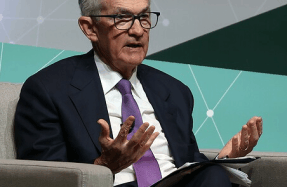How tensions between the police and media boiled over one chaotic night in LA

Bodycam footage shows police shooting rubber bullets at reporters. Smartphone videos capture police taking them into custody. Throwing them to the ground. Striking them with batons.
Over the past two years, 200 journalists have been arrested or detained while doing their jobs, right here in the U.S. Journalists have complained that police kept them far from the action, shut them down, even brutalized them and destroyed their equipment — in short, intimidated and prevented them from reporting.
One night of chaos in Los Angeles stands out, however, both for illustrating the collapse of the relationship between these two powerful institutions — the police and the news media — and for helping to spark reforms in California.
A year ago this month, as police prepared to sweep Echo Park Lake of homeless encampments, protests broke out. The reporters who descended on the scene to record it were caught in the middle, as police were unable or unwilling to distinguish between reporters and activists.
According to press advocates, police detained at least 16 journalists. Two reporters and an independent news blogger were arrested and held at a police station for hours. Two other reporters were zip-tied at the scene. Officers shot two photojournalists with what are called less-lethal rubber bullets.
The Los Angeles Police Department is facing legal challenges stemming from officers' actions that night and would only address in broad terms how it treats the press.
While it's important for the police to permit journalists to do their jobs, says LAPD Capt. Stacy Spell, the commanding officer of the force's media relations team, that's far from the department's only priority.
"When we're looking at situations where there is either civil unrest or protest or after sporting events, our greatest concern is ensuring that there is preservation of life and that there's preservation of property," Spell tells NPR. "It's very gray at times as to who's out there and with what intentions."
Others outside the LAPD don't mince words about Echo Park.
"It was a disaster for the police department," says former LA Police Department Deputy Chief Michael Downing, a former head of counterterrorism and special operations for the department. "These are not our enemies."
For some of the journalists who were at
You’re reading a preview, subscribe to read more.
Start your free 30 days



